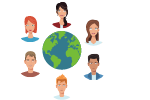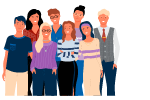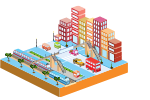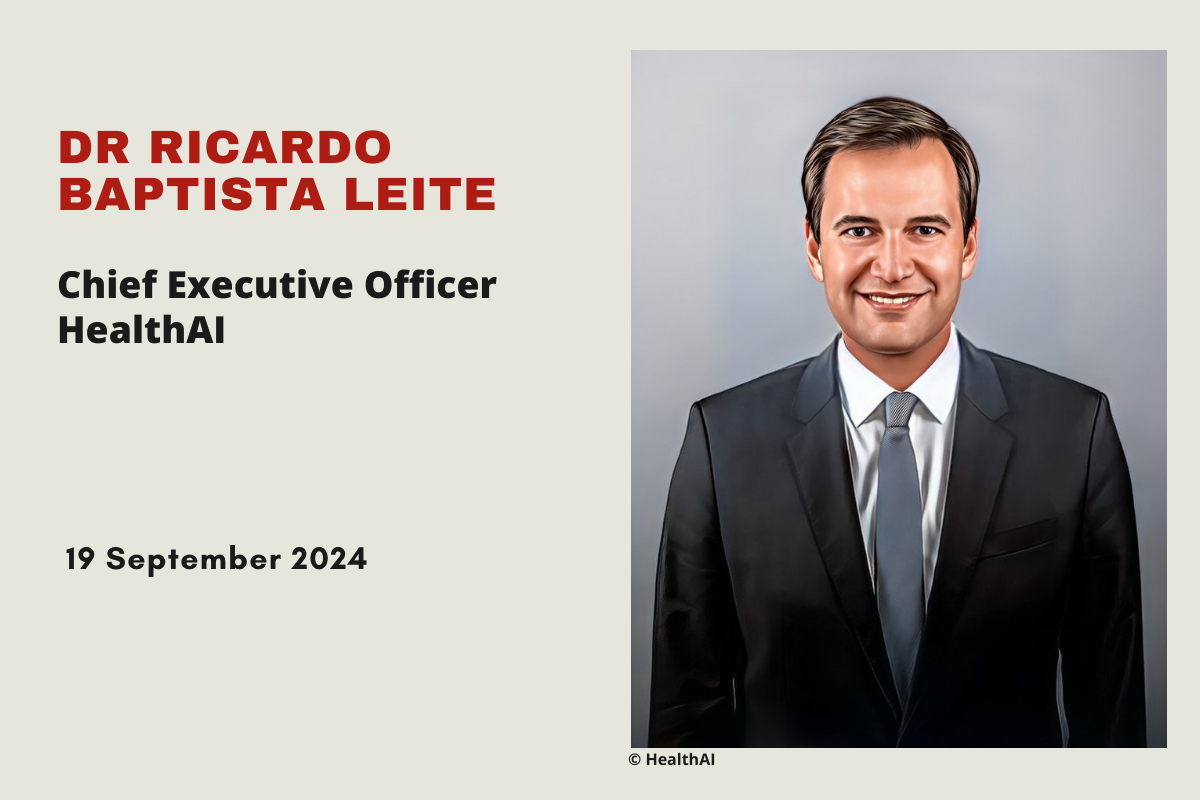The interview | Ricardo Baptista Leite
 | How would you present your organization in a few words? What entails your position? What is your goal? |
HealthAI – The Global Agency for Responsible AI in Health’ is a Geneva-based non-profit organization working as an implementing partner for governments, regulators, and multilateral agencies. Our mission is to advance the development and adoption of responsible AI solutions that can lead to equitable and inclusive improvements in health and well-being for all individuals and communities.
Our approach is about helping to ensure safe, quality, equitable, and effective AI tools for all when it comes to health. As the CEO of HealthAI, and with the invaluable support of both our board and our team of experts in health and technology, I contribute to setting the vision and mission of the organization, ensure that all voices are heard regarding global AI health policies, advocate for responsible AI use, and facilitate a collaborative environment among various stakeholders committed, like us, to enhancing global health through advanced technologies. We are laser-focused on our mission so patients and families worldwide can have healthier futures. We know that Artificial Intelligence can save lives. We just need to get the regulations (and ecosystem) right.
 | Among the concentration of actors in Geneva (IOs, NGOs, permanent missions, academia, and the private sector), who do you work with and how? |
HealthAI is a critical link between organizations establishing global guidelines and standards, such as the World Health Organization, and the national and regional regulatory authorities mandated for implementation. We partner with diverse stakeholders, including international organizations, NGOs, patient organizations, academia, and the private sector, to co-create strategies, share knowledge, and promote the responsible use of AI in health systems globally. To that extent, we have launched the ‘HealthAI Community of Practice’ precisely to facilitate these collaborative efforts and to which any of these institutions can apply on our website. As technical advisors, we assist governments and regulators in adopting and adapting international guidelines and standards, ensuring equitable access to safe and effective AI solutions through the Global Regulatory Network we are building in partnership with governments.
 | What are the strengths and weaknesses of Geneva with regards to the development of your activity? |
Geneva is undeniably a strategic location for global diplomacy, providing crucial access to international bodies and boasting a vibrant ecosystem for health and technology. The fact that so many health and tech-oriented multilateral organizations are based in Geneva, starting with the World Health Organization, is a major advantage.
In terms of weaknesses, I would mention the high cost of living and working and the competition for attention in a saturated environment.
 | What do you think global governance should look like 20 or 30 years from now? |
In the next 20 to 30 years, global governance should evolve into a collaborative framework that includes governments, regulators, scientists, civil society and patient organizations. This ecosystem should harness AI's potential responsibly, ensuring it saves lives and improves well-being equitably. To achieve this goal, the principles of the responsible use of artificial intelligence must be adopted by all stakeholders, from developers to end users, from the start. That is why we consider it essential to involve the private sector early on, aligning their objectives with public interests and building trust and cooperation across all stakeholders. The goal is a future where AI in health is widely trusted, responsibly used, and accessible to everyone, with equitable adoption across different countries that objectively ensures access to health for all citizens and the universal improvement of health standards. In other words, we believe that the transformative power of AI can facilitate a revolution in healthcare, moving health systems away from the current disease-reactive models of care towards novel ecosystems that promote quality of life and well-being. It is the future we are working for, and it Is time for all of us to join efforts to ensure we get there together.
 | What question would you like to have been asked? And what keeps you “awake at night”? |
I am concerned that, amid so much hype around Artificial Intelligence, our generation may not fully embrace the concept that our future success is only possible if we incorporate compassion, empathy, and “human connections” as central elements of this tech-driven future ahead of us. Moreover, we cannot let fear stop us from harnessing AI’s positive impact on patients, families, healthcare workers, and local economies. At HealthAI we work daily precisely to address these challenges for the benefit of humanity. Join us, so that we can co-create this amazing future together.
